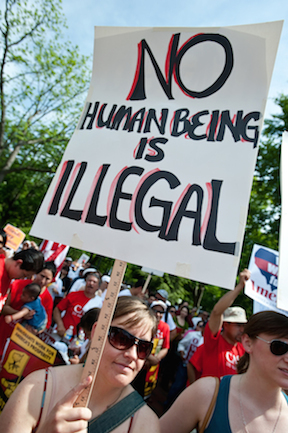Expect More Lawsuits And Restrictions On H-1B Visas In 2020
FROM FORBES 12/16/2019
The year 2020 is unlikely to be an improvement over 2019 for companies that hire foreign-born scientists and engineers on H-1B visas. Companies should expect 2020 to bring more restrictions.
An H-1B is generally the only practical way for an international student or a high-skilled foreign national educated abroad to work long-term in the United States. Under Trump administration policies, denial rates for H-1B petitions for initial employment (primarily new employees) quadrupled, “rising from 6% in FY 2015 to 24% through the third quarter of FY 2019,” according to a National Foundation for American Policy analysis. “The 12% denial rate for continuing employment [mostly for existing employees] is also historically high – 4 times higher than the denial rate of only 3% for H-1B petitions for continuing employment as recently as FY 2015.”
In a stable policy environment that adheres to the law and regulations, H-1B denial rates should be extremely low, since, given the time and expense, companies and attorneys only submit applications for individuals they believe meet the legal requirements.
Three developments in 2020 may affect H-1B visas. First, U.S. Citizenship and Immigration Services (USCIS) has announced it will implement an electronic registration for “petitioners seeking to file H-1B cap-subject petitions.” A $10 fee will be charged for each registration. “You may submit as many beneficiaries as you would like for one registrant (employer/agent) in one registration,” according to information on the USCIS H-1B registration tool released online. Employers would list each professional and he or she would be entered into the “lottery” held in April each year for 65,000 H-1B petitions and the 20,000-exemption from the annual limit for foreign nationals with advanced degrees from U.S. universities. “USCIS will open an initial registration period from March 1 through March 20, 2020,” according to an agency press release.
“The new H-1B registration system will likely dramatically increase initial applications,” said Dagmar Butte, a partner at Parker, Butte & Lane, in an interview. She thinks smaller employers potentially could be “squeezed out” under the new system. “In addition, since the government has not been entirely clear about the post-selection process and timing, it is likely that a scramble to complete and file petitions will ensue that will create significant time pressure on employers and their attorneys.”
This assumes the system is implemented in 2020. “Our worst nightmare is that the announced electronic registration system for the lottery either doesn’t work as intended or is stopped at the 11th hour and leaves hundreds of thousands of potential applications unprepared,” said Butte. “Most attorneys recommend that employers have at least a skeletal application ready to go in case USCIS decides to scrap the registration at the last minute.” There is also a potential for problems at the Department of Labor, which could experience an influx of labor condition applications (another part of the H-1B process) after the lottery selections are made.
